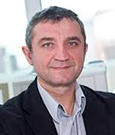
Ruslan Medzhitov
Yale School of Medicine
USA
EMBO | EMBL Symposium
Please note that this event will now take place virtually.
“Like a machine, any organism, even the simplest, is a functional unit, coherent and integrated. We are far from having elucidated, in complex organisms, the entire structure of these functional units”. A major outcome of research using model organisms has been to address this central question of biology that was stated so clearly and candidly by J. Monod in 1969. Genetic studies in model organism have first revealed that we are far from knowing all the functions fulfilled by various organs in vertebrates or invertebrates. In doing so, this body of work has nonetheless led to unprecedented progress in our understanding of how homeostasis of an entire organism is maintained. As a result, modern physiology has slowly moved from a purely molecular discipline back to rediscovering its holistic nature. The powerful combination of molecular and physiological approaches is revealing new insights into energy metabolism, endocrinology, cardiovascular and renal physiology as well as the regulation of cognitive and immune functions. Symbiotic interactions with resident microbes have added a further dimension to the study of host physiology.
This symposium aims to provide a high visibility platform to scientists from multiple disciplines who use molecular genetic tools to probe inter-organ communication signals that maintain homeostasis. We anticipate that, by bringing together scientists interested in various aspects of vertebrate and invertebrate animal physiology, we will foster interactions between them that will accelerate the discovery of novel physiologies. This meeting will also directly address a fundamental and long-term goal of the study of physiology: how can recent developments in whole-organism physiology pave the way to novel, adapted and efficient therapies for multiple degenerative diseases?

Icahn School of Medicine at Mount Sinai
USA
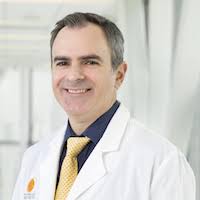
UT Southwestern Medical Center
USA
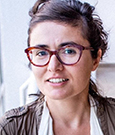
University of Oxford
UK
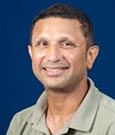
University of Maryland
USA

Harvard Medical School and Beth Israel Deaconess Medical Center
USA
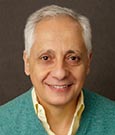
Columbia University
USA

Columbia University
USA

Institut Curie
France

New York University
USA

MRC London Institute of Medical Sciences and Imperial College London
UK
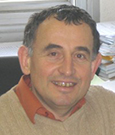
INSERM
France
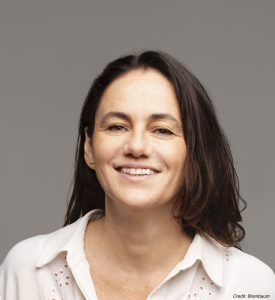
Technion – Israel Institute of Technology
Israel

Instituto Gulbenkian de Ciência
Portugal

Scripps Research
USA
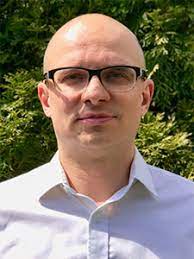
Icahn School of Medicine at Mount Sinai
USA

Columbia University
USA

MRC London Institute of Medical Sciences and Imperial College London
UK

Instituto Gulbenkian de Ciência
Portugal
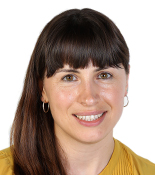
EMBL Heidelberg
Germany
Got something to say? Tweet it! #EESInterOrgan
All times in the programme below are shown as the time in Europe/Berlin.
To find out the equivalent time zone in your location, enter Berlin, the programme time and date along with your city into the Time Zone Converter.
| Time | Speaker |
|---|---|
| 14:00 – 14:15 | Opening remarks by Scientific Organisers |
| 14:15 – 17:05 | Session 1: Non-canonical inter-organ communication Chairs: Iqbal Hamza and Irene Miguel-Aliaga |
| 14:15 – 14:40 | Intestinal gluconeogenesis: what was the purpose of natural selection? Gilles Mithieux – INSERM, France AVAILABLE ON DEMAND AFTER LIVE STREAM |
| 14:40 – 14:55 | Extracellular vesicle-mediated transfer of functional molecules from periphery to brain in vivo Stefan Momma – Goethe University Frankfurt, Germany AVAILABLE ON DEMAND AFTER LIVE STREAM |
| 14:55 – 15:20 | Towards a molecular definition of bone-driven acute myeloid leukemia Stavroula Kousteni – Columbia University, USA AVAILABLE ON DEMAND AFTER LIVE STREAM |
| 15:20 – 15:35 | Identification of kidney injury released circulating osteopontin as causal agent of respiratory failure Andreas Herrlich – Washington University School of Medicine in St. Louis, USA AVAILABLE ON DEMAND AFTER LIVE STREAM |
| 15:35 – 15:50 | Break |
| 15:50 – 16:15 | Metabolic outliers in human disease Ralph DeBerardinis – UT Southwestern Medical Center, USA AVAILABLE ON DEMAND AFTER LIVE STREAM |
| 16:15- 16:30 | Tribbles pseudokinase regulates metabolism and sleep Rebeka Popovic – University of Cambridge, UK AVAILABLE ON DEMAND AFTER LIVE STREAM |
| 16:30 – 16:55 | Long-range signaling at the intestinal-neural axis promotes organismal heme homeostasis Iqbal Hamza – University of Maryland, USA ONLY AVAILABLE TO VIEW LIVE |
| 16:55 – 17:00 | Transition to Panel Discussion |
| 17:00 – 17:30 | Panel Discussion – Session 1 Chairs: Iqbal Hamza and Irene Miguel-Aliaga ONLY AVAILABLE TO VIEW LIVE |
| 17:30 – 18:00 | Break |
| 18:00 – 19:00 | Poster Session 1 (A-O) |
| 19:00 – 19:05 | Transition to Session 2 |
| 19:05 – 21:20 | Session 2: Brain-body crosstalk Chairs: Ralph DeBerardinis and Ivan De Araujo |
| 19:05 – 19:30 | Inter-organ neural circuits for reward and appetite Ivan De Araujo – Icahn School of Medicine at Mount Sinai, USA AVAILABLE ON DEMAND AFTER LIVE STREAM |
| 19:30 – 19:45 | Novel candidate human obesity genes act in neurons to regulate adiposity Neha Agrawal – University of Cambridge and University of Edinburgh, UK AVAILABLE ON DEMAND AFTER LIVE STREAM |
| 19:45 – 20:10 | Neuroimmunometabolism Ana Domingos – University of Oxford, UK ONLY AVAILABLE TO VIEW LIVE |
| 20:10 – 20:25 | Break |
| 20:25 – 20:50 | How the brain, lungs, and bladder contribute to social behavior in the mouse Lisa Stowers – Scripps Research, USA AVAILABLE ON DEMAND AFTER LIVE STREAM |
| 20:50 – 21:05 | Hormonal remodelling of a parenting circuit during pregnancy Johannes Kohl – The Francis Crick Institute, UK AVAILABLE ON DEMAND AFTER LIVE STREAM |
| 21:05 – 21:20 | A hypothalamic plasticity mechanism for heat acclimation Jan Siemens – Heidelberg University, Germany AVAILABLE ON DEMAND AFTER LIVE STREAM |
| 21:20 – 21:25 | Transition to Panel Discussion |
| 21:25 – 21:55 | Panel Discussion – Session 2 Chairs: Ralph DeBerardinis and Ivan De Araujo ONLY AVAILABLE TO VIEW LIVE |
| 21:55 – 22:00 | Transition to Bar Mixer |
| 22:00 – 22:30 | Social Programme: Bar Mixer |
| Time | Speaker |
|---|---|
| 13:00 – 13:45 | Social Programme: Speed Networking |
| 14:00 – 17:00 | Session 3: Immune-metabolic crosstalk Chairs: Asya Rolls and Miguel Soares |
| 14:00 – 14:25 | Type 3 innate lymphoid cells as integrators of microbiota and gut neuroimmune interactions Dan Littman – New York University, USA AVAILABLE ON DEMAND AFTER LIVE STREAM |
| 14:25 – 14:40 | A Drosophila tumor necrosis factor receptor (TNFR) restricts cytoplasmic TRAF levels to control gut metabolism, immunity, and tissue homeostasis Ditte Andersen – University of Copenhagen, Denmark AVAILABLE ON DEMAND AFTER LIVE STREAM |
| 14:40 – 15:05 | Remembering immunity: immune representation in the insular cortex Asya Rolls – Technion – Israel Institute of Technology, Israel AVAILABLE ON DEMAND AFTER LIVE STREAM |
| 15:05 – 15:20 | Break |
| 15:20 – 15:45 | Metabolic reprogramming: a defense strategy against infection Miguel Soares – Instituto Gulbenkian de Ciência, Portugal AVAILABLE ON DEMAND AFTER LIVE STREAM |
| 15:45 – 16:00 | Neural control of macrophage activation regulates cardiac regeneration Onur Apaydin – Max Delbrück Center for Molecular Medicine, Germany ONLY AVAILABLE TO VIEW LIVE |
| 16:00 – 16:25 | Lifestyle and leukocyte dynamics Filip Swirski – Icahn School of Medicine at Mount Sinai, USA ONLY AVAILABLE TO VIEW LIVE |
| 16:25 – 16:30 | Transition to Panel Discussion |
| 16:30 – 17:00 | Panel Discussion – Session 3 Chairs: Asya Rolls and Miguel Soares ONLY AVAILABLE TO VIEW LIVE |
| 17:00 – 17:30 | Break |
| 17:30 – 18:30 | Poster Session 2 (P-Z) |
| 18:30 – 18:35 | Transition to Session 4 |
| 18:35 – 20:50 | Session 4: The gut and its microbes Chairs: Ana Domingos and Henrique Veiga-Fernandes |
| 18:35 – 19:00 | Inter-organ signalling: the third dimension Irene Miguel-Aliaga – MRC London Institute of Medical Sciences and Imperial College London, UK ONLY AVAILABLE TO VIEW LIVE |
| 19:00 – 19:15 | A gut-taste axis control sweet perception in Drosophila Mattias Alenius – Umeå University, Sweden AVAILABLE ON DEMAND AFTER LIVE STREAM |
| 19:15 – 19:40 | Neuronal regulation of immune fitness Henrique Veiga-Fernandes – Champalimaud Foundation, Portugal AVAILABLE ON DEMAND AFTER LIVE STREAM |
| 19:40 – 19:55 | Break |
| 19:55 – 20:10 | Microbial influence on linear growth promotion François Leulier – Ecole Normale Supérieure de Lyon / CNRS, France AVAILABLE ON DEMAND AFTER LIVE STREAM |
| 20:10 – 20:25 | Enterohepatic cooperation during the postnatal establishment of immune homeostasis Annika Schwentker – University Hospital RWTH Aachen, Germany AVAILABLE ON DEMAND AFTER LIVE STREAM |
| 20:25 – 20:50 | The impact of the skeleton on homeostasis Gerard Karsenty – Columbia University, USA AVAILABLE ON DEMAND AFTER LIVE STREAM |
| 20:50 – 20:55 | Transition to Panel Discussion |
| 20:55 – 21:25 | Panel Discussion – Session 4 Chairs: Ana Domingos and Henrique Veiga-Fernandes ONLY AVAILABLE TO VIEW LIVE |
| 21:25 – 21:30 | Transition to Living Room Concert |
| 21:30 – 22:00 | Living Room Concert with Lazy Fur |
| Time | Speaker |
|---|---|
| 13:00 – 13:30 | Meet the Editors session with – Paraminder Dhillon, FEBS – Mari-Carmen Fernandez-Aguera, Cell Metabolism – Masha Gelfand, Developmental Cell – Deniz Senyilmaz Tiebe, EMBO – Yang Yang, Cell |
| 13:30 – 14:00 | Break |
| 14:00 – 15:50 | Session 5: Fat and liver signals Chairs: Gerard Karsenty and Pierre Leopold |
| 14:00 – 14:25 | The role of brown fat beyond thermogenesis: how do brown fat and liver communicate? Shingo Kajimura – Harvard Medical School and Beth Israel Deaconess Medical Center, USA AVAILABLE ON DEMAND AFTER LIVE STREAM |
| 14:25 – 14:40 | Proteomics of protein trafficking by in vivo tissue-specific labeling Ilia Droujinine – Scripps Research, USA AVAILABLE ON DEMAND AFTER LIVE STREAM |
| 14:40 – 14:55 | A mammalian system for in vivo discovery of organ secretome using proximity labelling Rui Yang – University of Southern California, USA AVAILABLE ON DEMAND AFTER LIVE STREAM |
| 14:55 – 15:10 | Break |
| 15:10 – 15:35 | Pathological disruption of hormonal and nutrient balance in tumor-induced cachexia Pierre Leopold – Institut Curie, France ONLY AVAILABLE TO VIEW LIVE |
| 15:35-15:50 | Reciprocal perfusion and organotypic microenvironments allow improved microphysiological systems and 3D tissue model crosstalk Joanne Shen – Karolinska Institutet, Sweden AVAILABLE ON DEMAND AFTER LIVE STREAM |
| 15:50-16:50 | Evolutionary perspective on physiological control Keynote Speaker: Ruslan Medzhitov – Yale School of Medicine, USA AVAILABLE ON DEMAND AFTER LIVE STREAM |
| 16:50-17:00 | Break |
| 17:00 – 17:30 | Panel Discussion – Session 5 and Keynote Chairs: Gerard Karsenty and Pierre Leopold ONLY AVAILABLE TO VIEW LIVE |
| 17:30 – 17:45 | Closing Remarks and Poster Prize ONLY AVAILABLE TO VIEW LIVE |
| 17:45 | End of conference |
Registration Fees (include access to all of the talks, digital poster sessions and online group discussions, and help us cover our costs to run the event. For further information please refer to the FAQ page):
| PhD Student | €140 |
| Academia | €190 |
| Industry | €240 |
Accredited journalists may be eligible to register for a reduced press rate or in some cases for complimentary registration. Registrants may be required to provide accreditation or equivalent proof of press membership after registration. Please contact Nathalie Sneider for more information.
Registration will be on a first-come first-served basis. Your place can only be confirmed after payment of the registration fee. I
Types of payments accepted are international bank transfers and credit card payments.
Abstract submission deadline: Monday 24 January 2022.
Only registered participants are eligible to submit an abstract. We only accept online abstract submissions.
After you have logged in and successfully registered, you will receive an email asking you to submit your abstract. Click on the link provided and enter your abstract in the text box provided. Alternatively you can submit your abstract by clicking on the link on the confirmation page directly after registering. The same login credentials are used for both processes.
When submitting your abstract you can also apply for an oral or poster presentation. A selection process will take place with the results announced 2-3 weeks after the abstract submission deadline.
Please note:
Title: The title should not exceed 20 words. Only the first word of the title should start with a capital letter and the rest of the title should be in lowercase.
Authors and Affiliations: Please fill in the author’s details as requested in the online form. The compulsory details are: First Name, Last Name, Organisation Name (Affiliation or Company), Country and Email. Mark only one author as the role of First author and please don’t forget to indicate who will be presenting. The order of the authors will be listed as follows: First Author, Co-First Author (alphabetically if multiple), co-author(s) (in the order added by the submitter).
Presentation Types: When submitting your abstract, you can apply for an oral or poster presentation. A selection process will take place with the results announced 2-3 weeks after the abstract submission deadline.
Please check our FAQs pages for further information on how to submit an abstract.
All academic and student registrants are invited to apply for a registration fee waiver, provided by the EMBL Advanced Training Centre Corporate Partnership Programme and EMBO. The registration fee waiver covers the registration sum that you have paid to attend the meeting. Conference participants are not required to pre-pay the registration fee to be selected for a fee waiver for a virtual meeting. If you have already paid the registration fee and are awarded a fee waiver, it will be reimbursed after the meeting.
The fee waiver will cover the registration sum that you have paid to attend the course or conference.
For participants and speakers with childcare responsibilities there is the possibility to apply for a grant, provided by the EMBL Advanced Training Centre Corporate Partnership Programme and EMBO, to offset childcare costs incurred when participating at a virtual event. Eligible costs include fees for a babysitter or childcare facility or travel costs for a care giver. Please note that priority will be given to early stage researchers. Costs will be reimbursed after the meeting only once a reimbursement form and original receipts have been received. Attendance at the event is required in order to be eligible to receive the reimbursement. In order to apply for this grant, you must be registered by the abstract submission deadline.
Applications for financial assistance can be submitted via the submission portal* (for the submission of abstracts for conferences) by completing the Financial Assistance Application Section (underneath the section for entering abstract/motivation letter information). The link to the portal can be found in the registration confirmation email that you will receive after registering for the conference.
For conferences, if you are not submitting an abstract, you can still apply for financial assistance in the submission portal. Take a look at the instructions for applying for financial assistance. Note that priority will be given to those submitting an abstract to present at the conference. In your application you will be asked to answer questions regarding your motivation for applying, and, for registration fee waivers, the reasons why your lab cannot fund your attendance and how your attendance will make a difference to your career. Application for financial support will not affect the outcome of your registration application.
The scientific organisers will select the recipients of all financial assistance during the motivation letter or abstract selection process. Results will be announced approximately around 5 weeks before the event start date, however for some events this may be delayed. Selection results do not impact your admission to the meeting. Selection is based on your current work or study location, the reasons for needing financial support and the impact this event will have on your career.
See our list of external funding opportunities and information on attending a conference as an event reporter.
For further information about financial assistance please refer to the FAQ page.
Additional information can be found in our Code of Conduct.
It is important to stay healthy and move around, especially when you are attending an event virtually. We have put together a few coffee break stretches and yoga videos in the conference platform for you to enjoy during the event.
Please use the Q&A function in the event platform.
If you have any other questions, you can go to the Help Desk in the event platform. Click on ‘more’ on the top menu and click Help Desk.
The programme is planned based on the Europe/Berlin time zone, unless otherwise stated. As many virtual participants are attending from around the world, we do our best to accommodate as many time zones as possible when creating the programme. Please take your time zone into consideration when planning your attendance. Remember to set your time zone in your account.
We are using a virtual event platform for this conference. More information about the platform will be shared ahead of the conference.
Please find additional information including FAQs and terms and conditions on our Information for Participants page.
Media partners
Development, a The Company of Biologists journal
Disease Models & Mechanisms, The Company of Biologists Journal
EMBO Journal, an EMBO Press journal
International Union of Biochemistry and Molecular Biology
Open Biology, a Royal Society journal
Sponsorship opportunities
We offer a variety of event sponsoring possibilities, with the flexibility to select a set sponsorship package or combine individual sponsorship options to suit your event budget. Discounts are available for companies sponsoring multiple events at EMBL Heidelberg. View other conferences, or contact sponsorship@embl.de for further information.
If you are interested in becoming a media partner of this event, please visit our media partnerships webpage.
EMBL wishes to warn sponsors of EMBL conferences and courses of fraudulent schemes purporting to offer sponsorship opportunities on behalf of EMBL or affiliated with EMBL officials. One current scam campaign of which we are aware is conducted using the name ‘Judy Eastman’ (judy@gopcontact.a2hosted.com) and entails approaches to sponsors offering sponsorship opportunities on EMBL’s behalf. Please be kindly advised that all relevant communication regarding sponsorship of EMBL conferences, symposia and courses is handled by EMBL directly and is sent from an official EMBL account. EMBL does not work with any external providers on sponsorship acquisition.
Please also note that:
Suspicious communications purportedly from, for or on behalf of EMBL should be reported to EMBL at the following email address sponsoring@embl.de.
EMBO | EMBL Symposia promote scientific communication and collaboration in the European research area. They provide scientists with a platform to discuss and exchange ideas on forward-looking topics and new developments in the life sciences.
Topics emphasise upcoming developments and the interdisciplinary nature of related fields. Jointly funded and organised by EMBO and EMBL – and complementary to their respective courses, workshops, and conference programmes – the symposia promote scientific communication and collaboration.
All symposia are held in the EMBL Advanced Training Centre (ATC) in Heidelberg, Germany, or virtually.
Date: 21 - 23 Mar 2022
Location: Virtual
Deadline(s):
Abstract submission: Closed
Registration: Closed
Organisers:
Contact: Nathalie Sneider